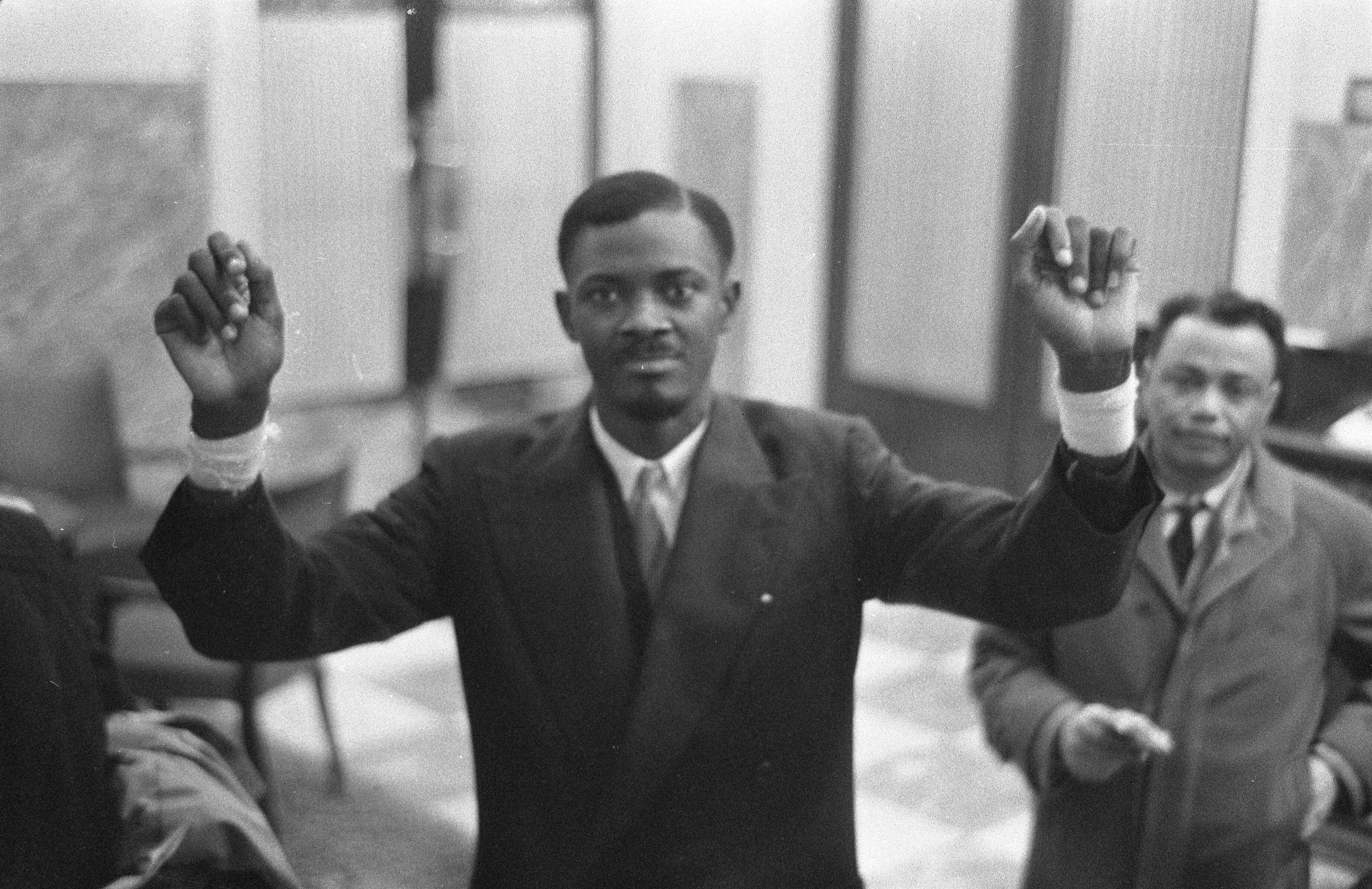HISTORY BE-BOP: Soundtrack to a Coup d'Etat (wri & dir Johan Grimonprez, 150mns, Belgium/France/Netherlands, 2024)
An inventive documentary set to a jazz beat about the political crisis in the DR Congo just after its independence from Belgian colonial rule in the late 1950's, early 1960's, SOUNDTRACK TO A COUP D'ETAT is a complicated piece of movie music.
Belgian filmmaker Grimonprez and his editor Rik Chaubet take footage-American jazz musicians on ambassador tours in the Congo, Congolese prime minister Patrice Lumumba and the political figures surrounding his struggle, even TV commercial and pop culture footage of that era.
They then cut them into a documentary jazz piece-pulsing, be-bopping, as they tell the story. Quotes, footnotes, images, moments percuss like a great midnight jazz jam.
The effect, at least for this viewer, is initially a bit too much. Like the smartest student in a class presenting a report that is a little too self-aware of its creativity. But either the moviemakers get better as they go or we the audience get acclimated because by the end of the movie, the overall effect is devastating.
The story of the Congo, first a European colonial playground and source of resource wealth, then a free country where the future seemed bright for the Congolese, then the victim of a coup d'etat at the hands of a brutal super power approved dictator, is the story of too many countries during the Cold War.
This doc touches on so many themes, it's overwhelming. But necessarily so. Just as an amazing jazz track can do so much musically on so many levels, so too does this movie work to touch on all kinds of historical strands.
1950’s Soviet Prime Minister Nikita Khrushchev and US President Dwight Eisenhower stretched their cold war fight to newly independent African countries like the Congo.
We get US President Eisenhower and USSR premier Khruschev viewing the Congo as a chess piece in the conflict between west and east. Congolese Prime Minister Patrice Lumumba is the tragic figure of this story in history. Working to finally bring his people and country out of the shadow of colonial oppression, Lumumba discovers his intelligence and integrity are no match for the multi-national desire to control the natural resources in the Katanga mines. Resources that rightfully should be controlled by the Congolese. It turns out the Congo had the uranium we needed for nuclear weapons. And now, in 2025, the Congo may have the natural resources needed for our big tech devices.
At the same time the Congo was making its entrance onto the world stage in the late 1950's, the US was deploying admired cultural ambassadors like Jazz legend Louis Armstrong to win over the Congolese people. But Armstrong himself understood only too well the hypocrisy of US black jazz musicians as cultural ambassadors to Africa when black folk in the US South in the late 1950's were still facing murder, lynchings, inability to vote, etc.
Fascinating characters and moments pop up in the doc like biracial freedom fighter Andree Blouin who devoted her life to the fight for African independence and was pilloried by the white press. A late movie moment caught on film when black activists attend the UN during a speech by US Ambassador Adlai Stevenson and rise up in fury to protest the assassination of Lumumba is almost unbearable in its raw fury.
The tragic figure of the documentary is the Democatic Republic of the Congo’s first prime minister, Patrice Lumumba, who found himself at the center of a fight for his country’s precious resources.
What may be most troubling about the movie is how quickly this moment in history fades from our general consciousness. People in the west, the Soviet east, the pan-African freedom movement were motivated by what they felt they needed to do. Whether or not time proved them right or misguided is initially beside the point. All these folks were trying to make profound decisions in real time.
But we as a culture increasingly wipe these historical, political, cultural moments off the slate of our consciences at our own peril.
One can only weep at the mess the world powers created. It's clear of course the documentary is manipulating us with its technique and political point of view. And certainly a different group of documentarians making different decisions might present an alternate way of viewing this moment in history.
But the challenge is keeping history like this vital, fresh, and relevant to a world now 65 years removed. The decisions made in regards to the Congo reverberate to this day, most of all for the Congolese themselves who are still in the middle of war, brutality, global power plays.
For anything resembling an improved outcome to emerge, we have to study the lessons of the past and adjust.
The genius of this documentary is to set those lessons to an improvisatory jazz beat.
Craig Hammill is the founder.programmer of Secret Movie Club



